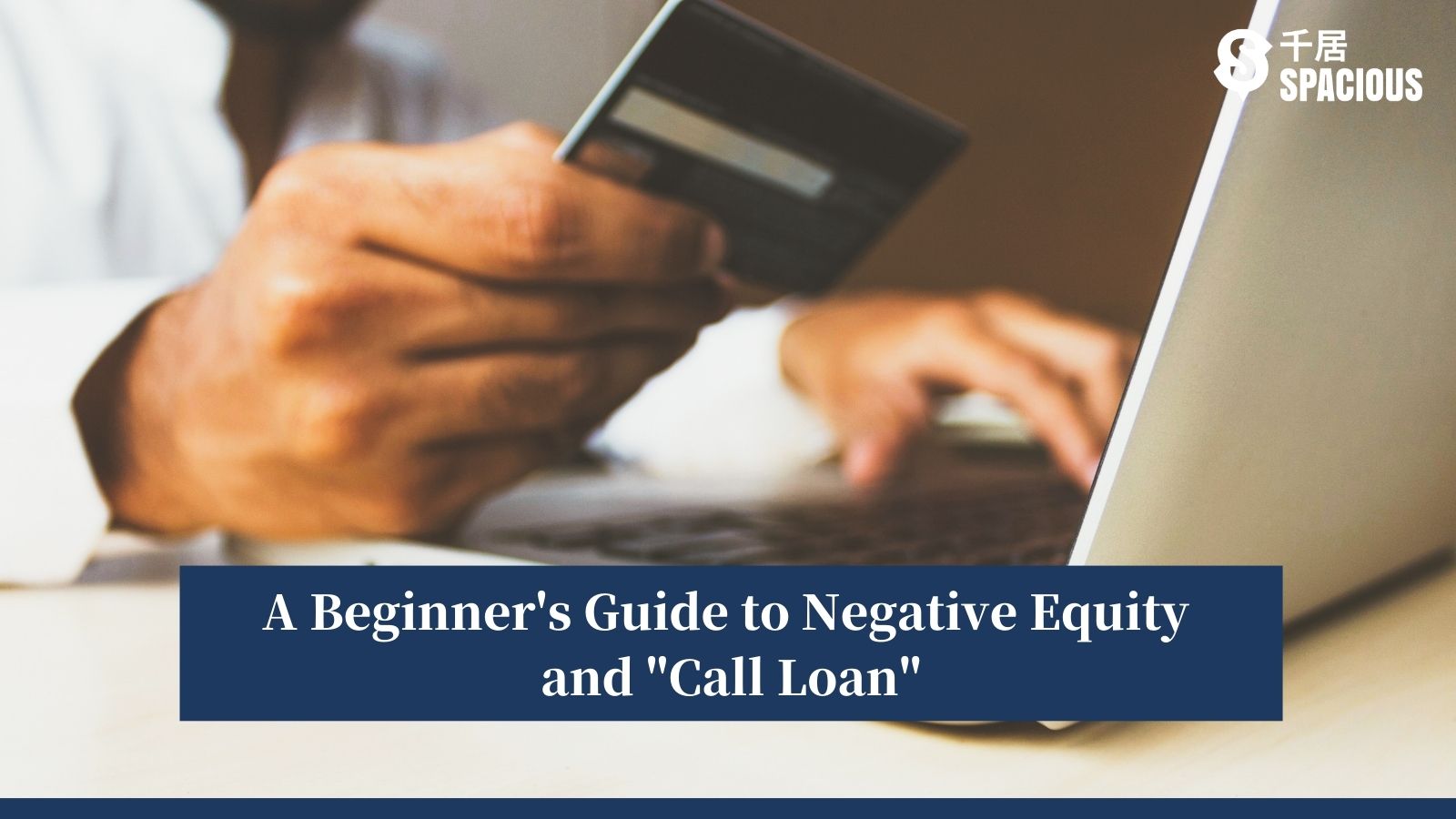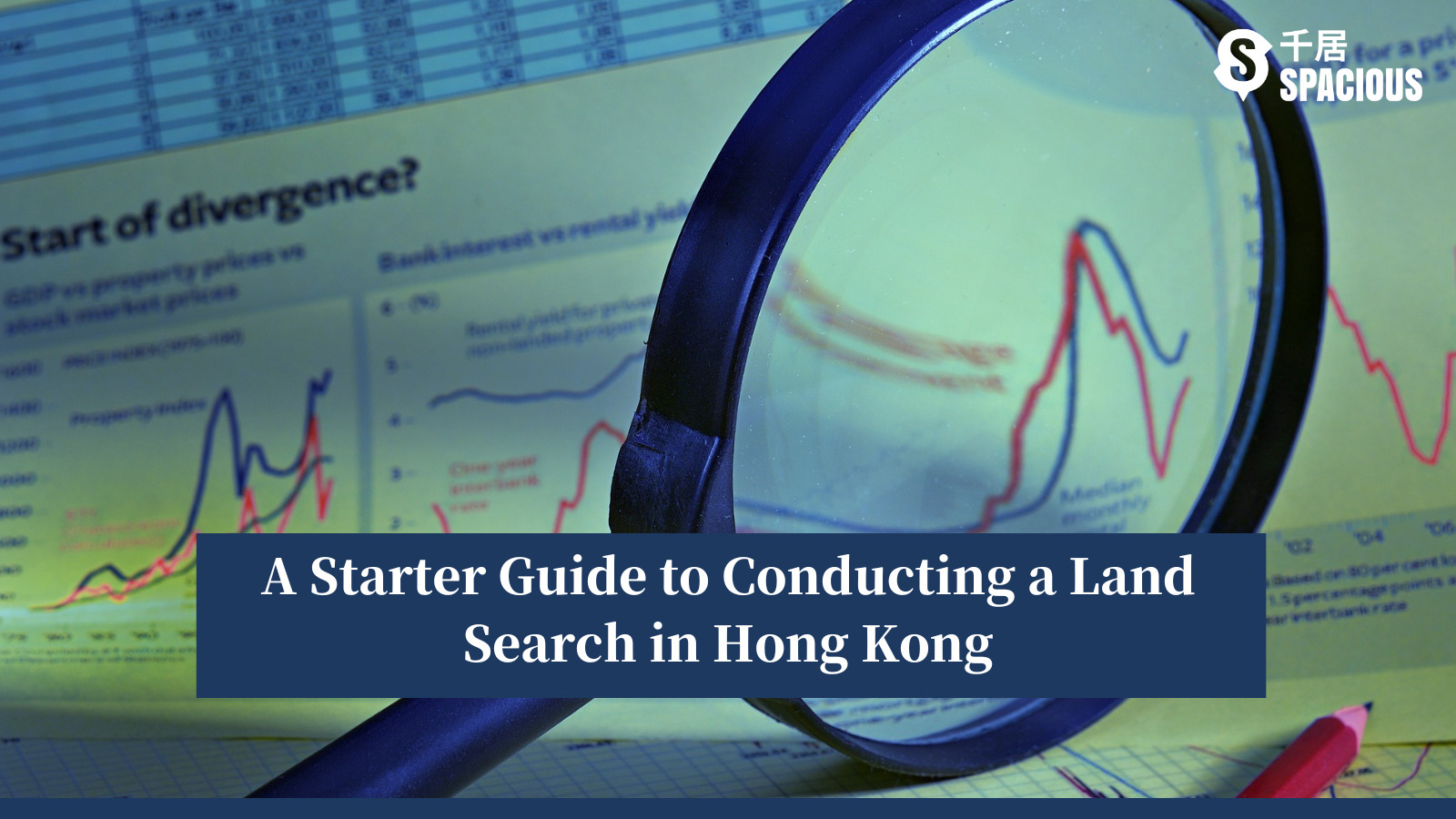
There are plenty of articles on the Internet teaching us how to do a land search at the Land Registry. Yet, very few teach us how to interpret the land register, which can be incredibly valuable to property searchers.
It is licensed estate agents’ duties to conduct land searches for their clients. Yet, buyers or tenants can also help themselves check the land registers of their interested properties. Let’s check out five pieces of useful information you should know from a land search.
Jump to: Lease Terms | Ownership | Sale and Purchase Records | Mortgage Records | Building Orders | FAQ
Every property has its own land register where you can get from the Land Registry. Each land record has four main sections – “Property Particulars”, “Owner Particulars”, “Encumbrances” and “Deeds pending Registration”. To ensure the property transaction proceeds smoothly, the buyer should pay attention to the following :
Lease Terms
All lands in Hong Kong (except for St. John’s Cathedral in Central) are owned by the SAR government. But not all of them have the same lease terms. Many people are concerned about those due to end in June 2047. The reason behind is that whether those land leases would be extended further is unknown, at least for now. This makes some buyers turn to properties with longer lease terms beyond that critical date.
The lease term of a property is shown under the “Property Particulars” section. Simply look for keywords such as “Held Under”, “Lease Term” and “Commencement of Lease Term” to get that information.
From the land record sample below, the lease term is 999-year, starting from 1892. Assuming the date of land search is 2021, the lease will be valid for the next 870 years. In other words, the lease term’s expiry date is way beyond June 2047. As long as the Government rent is settled on schedule, the land lease will be in effect at the time of 2047.
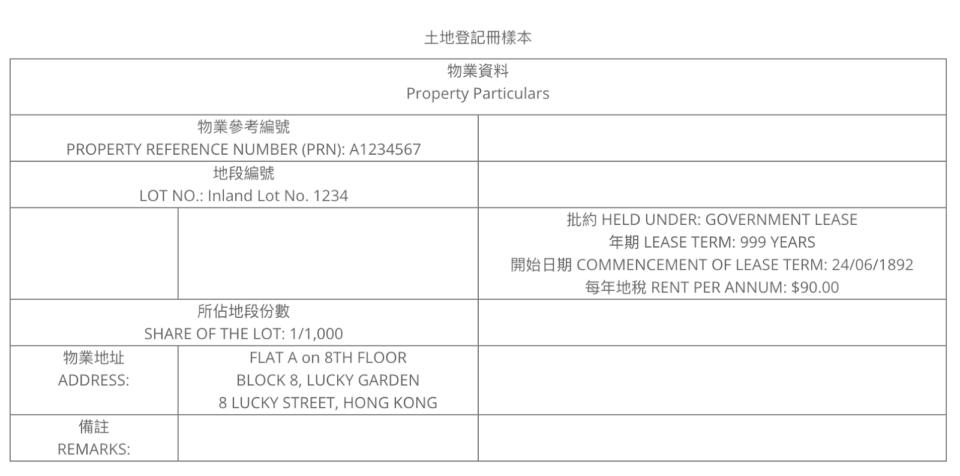
It’s worth noting that any land leases with an expiry date on June 30, 1997, have automatically been renewed to June 30, 2047.
Another point to note is that the “Rent per Annum” in the land register may sometimes be blank. The reason is that a standard formula ( rateable value x 3%) is applied to all land leases (granted after May 27, 1985) to calculate government rents, regardless of regional location.
Find or sell properties on Spacious
Ownership
The “Owner Particulars” section shows ownership details. The first left column shows the name of the owner and the next on the right shows the form of ownership. If more than one owner’s name appears, it means that the property is not solely owned. In the third column (Memorial No.), if the word “Assignment” appears, it means that the title is legally assigned.
There are two main forms of co-ownership: “Joint Tenancy” and “ Tenancy in Common”.
“Joint Tenancy” means all co-owners own the whole property together, but individually they do not own an undivided share. If any of the owners should pass away, the surviving owner may have full authority to dispose of the property.
“ Tenancy in Common”means each owner owns a distinct but undivided share of the property. No single owner is entitled to the exclusive use of the property, but each is entitled to possession and use of the whole property in common with the others.
If the property is owned by joint tenancy, the transaction has to be made between the buyer and all of the co-owners shown in the land record.

Sale and Purchase Records
The provisional and formal Agreements for Sale and Purchase are put under the “Encumbrances” section.
Although both agreements are signed during the sale and purchase process, usually it is the formal one that will be registered.
Even if the property has already changed hands multiple times, the “Nature” column is able to show all registered agreements. All you need is to opt for “Full Search” type while doing the land search, which enables the searcher to see the historical and current particulars of the property. The land search fee is $25.
Some documents registered under the “Encumbrances” section are informational but not transactional, such as the Deed of Mutual Covenant or Occupation Permit, while others might impact conveyancing of the property, such as building and charging orders.
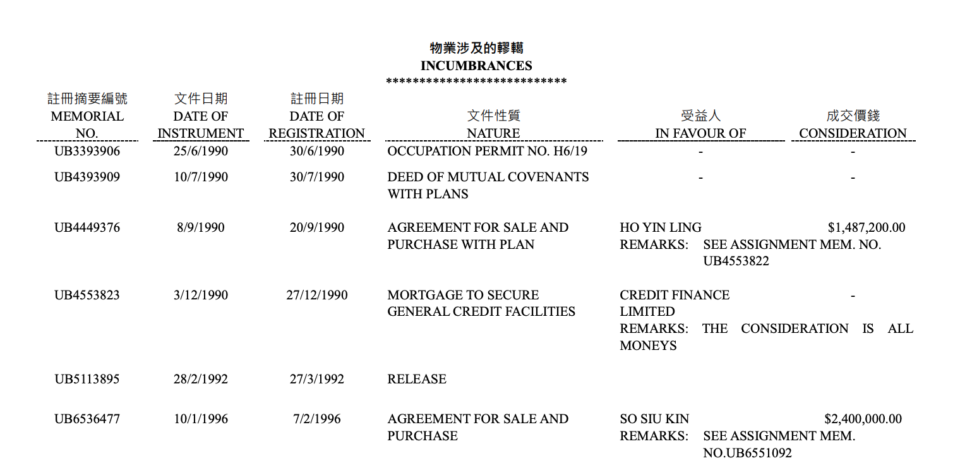
Find or sell properties on Spacious
Mortgage Records
Registered mortgage is shown under the “Encumbrances” section, represented by keywords such as “Mortgage”, “Legal Charge”. Legal Charge means that the property is charged to secure repayment of money owed by the borrower to the lender (e.g. bank).
Once all the loan amount is settled, a redemption document will be registered to discharge the mortgage. The document is named as “Release” or “Discharge”, normally shown immediately below the relevant registered mortgage which it serves to discharge.
Note that if an incomplete property is mortgaged, the registered mortgage is named “Equitable Charge”.
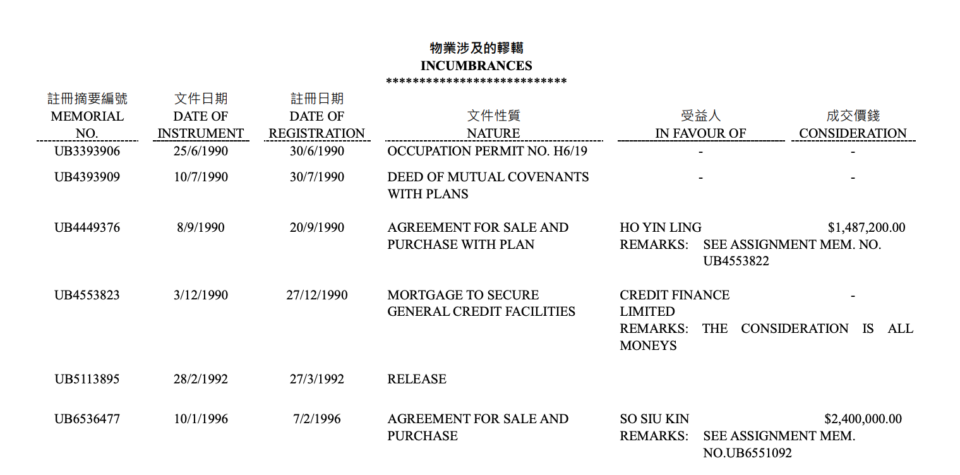
Building Orders
A building order is issued by the Buildings Department when a property or building has any illegal or unauthorised structures. The registered order is shown under the “Encumbrances” section.
If a building order is registered against a property, the owner needs to have the affected part fixed, repaired or restored. Once the remedial work is done and approved by the authority or relevant departments, a Letter of Compliance will be issued to discharge the respective building order.
There are several types of building orders, depending on what unsuitable structures are involved. Alteration and addition works are among the most typical types, associated with the Order Under Sec. 24(1) of the Buildings Ordinance.
Other common building orders are:
- Order Under Sec. 26 of the Buildings Ordinance (Dangerous Buildings)
- Order Under Sec. 27(a) of the Buildings Ordinance (Dangerous Hillside)
- Order Under Sec. 28 of the Buildings Ordinance (Dangerous Drainage)
- Order Under Sec. 33 of the Buildings Ordinance (Cost of Work)
When a building order is registered against a property, selling can be difficult. The vendor and the purchaser should negotiate with each other and make clear of who will cover the repair cost. It is wise to seek legal advice before proceeding with the transaction.
A comprehensive land Search has many more aspects to consider. If you are interested to know more, check the Estate Agents Authority for details. Last but not least, Spacious has a huge database of properties for rent and sale across all districts in Hong Kong. Don’t miss out.
Find or sell properties on Spacious
FAQ
What is the difference between the “Date of Instrument” and “Date of Registration” in the land register?
The Date of Instrument is the date of signature or issue of a deed or dcument; the Date of Registration is the date when the deed or document is submitted to the Land Registry.
What is an encumbrance to a property?
It’s a charge or other liability registered against the property, which may affect conveyancing of property.





